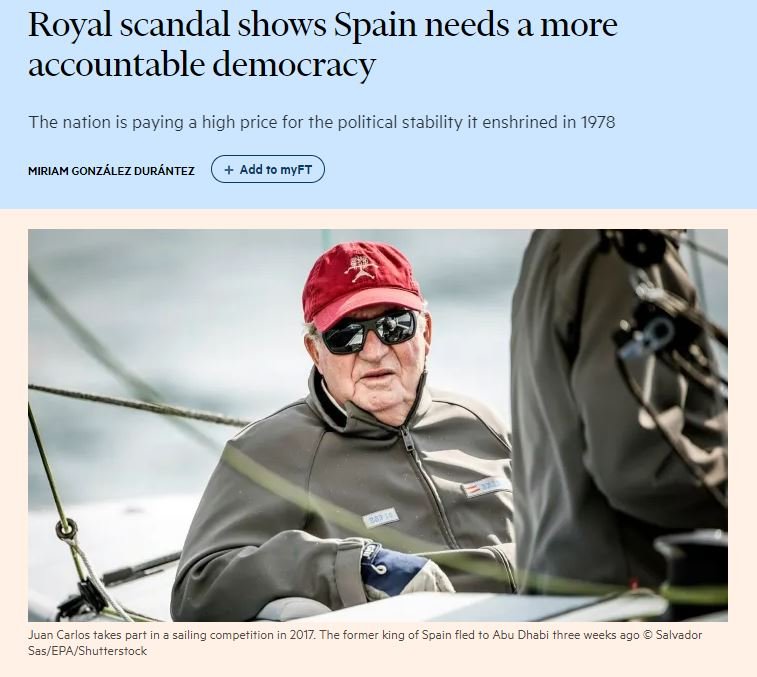The problem is a structural one for the Spanish state. That's the view expressed by an article published in the UK's Financial Times, which looks at the "royal scandal" in which the country's king emeritus Juan Carlos I is deeply entangled, and concludes that the blame goes back to the 1978 Spanish constitution due to the excessive protection which it gives to his office. "If the Spanish constitution had an effective system of checks and balances, it would have been impossible for the alleged improprieties of Juan Carlos to have lasted decades without anybody — be that government ministers, senior officials, royal household staff, security personnel, the intelligence services, diplomats, businesspeople or journalists — denouncing such behaviour and triggering a prompt investigation," it argues.
The text, by lawyer Miriam González Durántez, linked to the UK's Liberal Party, adds that in Spain a judicial process such as the attempted impeachment of US president Donald Trump, initiated by an official turned whistleblower, would not be possible. "The 1978 constitution was a success because it achieved enviable political stability as Spain made its transition to democracy. But over time, the focus on stability has ended up eroding the Spanish political system. If effective checks and balances were in place to hold the political establishment to account, perhaps there would not be so many Spaniards disenchanted with politics," asserts González Durántez.

"Royal scandal shows Spain needs a more accountable democracy", says the Financial Times
According to the article, the reason that the Spanish political system granted a high level of protection to the monarch (immunity from prosecution) "is that, when the constitution was drafted in 1978, the main objective was to preserve the country’s political stability. After 40 years of dictatorship, Spain was transitioning to democracy," states the text.
However, while the article has no doubt about the problem, it also points out the complexity of a solution, because constitutional reform is not at all easy. "Given the persistent threats to the Spanish state’s unity from Catalan and Basque separatism, reform of the constitution is unquestionably a challenge. If badly handled, it could derail the political system and in turn break the country apart. But turning an outdated constitution into a fortress will do little to ensure its survival," it says.
González Durántez concludes by asserting that, difficult though it may be, reform must take place to "transfer democratic power to the Spanish people" - because at present, she asserts, it is in the hands of the political establishment.

